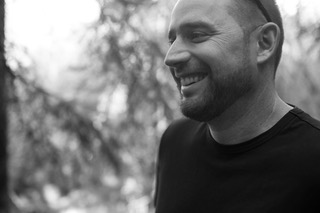ADHD Treatments
You Have Been Diagnosed With ADHD — Now What?
When you, or someone you know and care for, has been diagnosed with ADHD (Attention Deficit Hyperactivity Disorder) there are concerns about deciding what the best way is to help the person. There is no ‘cure’ for ADHD. However, research has shown that our brains can adapt and develop new abilities throughout our lifetime. ADHD can be successfully managed.
What Are My Options?
There are many treatment options. The best way is to consider the person’s needs, medical and personal history, and to work closely with everyone involved – from healthcare providers to family members. No single treatment works for every person. There are ‘different strokes for different folks’.
Medications
There are Amphetamine-based and Methylphenidate-based stimulants and non-stimulants. If you decide to try medication, it is important to be medically supervised.
Behavioral Strategies
Many people respond well to a reward system with clear consequences for behaviors. Behavior management or modification simply means being rewarded for positive behavior with the goal to increase them and vice versa. An environmental setting that is structured, quiet, predictable and less distracting may help for some. On the flip side, others may be motivated by more flexibility, movement and lots of stimulation.
Education, Training And Mindfulness
ADHD can be exhausting. Parents dealing with children with ADHD can benefit from tools and techniques for managing behavior problems. Mindful Parenting is recognizing your child is having their own experience in that moment, to be intentional and attentive in the moment. Social skills training helps the person with ADHD to learn new, more appropriate ways of interacting with others.
Counseling Or Psychotherapy
This allows a safe place for the person with ADHD to process their feelings and to develop strategies for dealing with the effects of ADHD. Some issues include broken friendships, poor relationships or plunging self-esteem.
Coaching
An ADHD coach partners with their clients to create daily structure and organization while providing support and encouragement to set goals and rewards and keeps them focused even when obstacles occur.
Support Groups
People with ADHD, friends, parents, spouses, partners, etc. may find strength, education, and encouragement when sharing experiences with others who are going through the same situations. It can be a tremendous booster!
Alternative Treatment Approaches
The ability to reorganize and create new pathways is called neuroplasticity and is the science behind Cognitive training and Neurofeedback. The ability to stimulate cells, generate more energy and to undergo self-repair is called Photobiomodulation and is the science behind the use of Light therapy.
How Do I Know Treatment Works?
When there are improvements in school or work performance, relationships with others improve or when self-esteem increases. If a person with ADHD does not respond to a multi-treatment approach, then the original diagnosis of ADHD should be reviewed.
Sources: Agency for Health Care Research and Quality (2011). ADHD Effectiveness of Treatment: a Systematic Review; Diagnostic and Statistical Manual of Mental Disorders, 5th Ed., 2013. Arlington: American Psychiatric Association; www.wehcs.com OR https://adhdassessment.ca
Roché Herbst
M.A.R. Psych
info@wehcs.com
My practice location is from my home office in Bragg Creek Mondays and Wednesdays 10am-5pm; Calgary office Tuesdays and Thursdays 9am-4pm. Call or text me on (403) 510-9984 or email: info@wehcs.com























